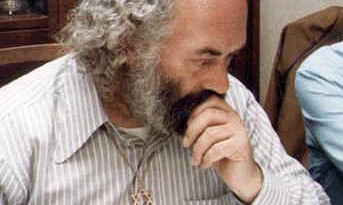Rabbi Leff’s Suggestions for Connecting with God
A former student of mine sent me a message asking “how does one become more spiritual in Judaism, how does one find God in prayer? I’ve been struggling with this as of late.” Other people have asked me the same thing in the past. I figured my answer would make a good blog post; maybe it can help some other people. If other people want to make suggestions, I would welcome them; feel free to comment below.
Spirituality is a very personal thing. You need to find what works for you. And you need to work at it. Like anything worthwhile, it takes time and effort. Here are some things that have worked for me:
- Just talk to God, the way you would talk to a good friend. This is a practice Rebbe Nachman calls hitbodedut, and it’s a form of Jewish meditation. Rebbe Nachman recommended doing it for an hour a day. I find shorter times work too. Try it for a fixed amount of time – set a timer for 15 or 20 minutes and say, “I’m going to really focus on talking to God for this time.” What I discovered is the first few minutes are very shallow, and reflect what’s going on with me that day; but after a while it gets much deeper.
- Learn prayerbook Hebrew. While God understands all languages, Hebrew is the “holy language” and using Hebrew connects us both with other Jews around the world and with our spiritual ancestors. One thing I found helpful is using an “interlinear siddur,” which provides a word by word translation of the Hebrew. You can bring your interlinear siddur to shul, not just use it at home; you just have to be able to find your own place.
- I recommend Aryeh Kaplan’s book Jewish Meditation. The one practice he describes which really stuck with me is this: There is a teaching in the Talmud that the “early pious ones” would take an hour to recite the Amidah; acknowledging most of us don’t have the time (or attention span!) to do that, he counted the words in the Amidah, and figured it comes to 5 to 7 seconds per word. Try saying just the first three blessings at that pace, and visualize/meditate on what each word means. An interlinear siddur can be helpful for this. The prayer opens with the word “Baruch,” “blessed.” Focus on what that means for a few seconds, and then move on to the next word. This practice transformed my experience of the Amidah – even when I say it faster now, it sticks with me.
- Meditating before praying can be helpful in calming the mind and making it easier to focus. That’s the idea behind a “Neshamah Minyan” that I’ve offered in the past. See Aryeh Kaplan’s book, mentioned above, for some different types of Jewish Meditation to try.
- See the sources for a class I teach on “Connecting with God through Prayer.” You’ll see a few sources from Rabbi Zalman Schachter-Shalomi’s book “Davening: A Guide to Meaningful Jewish Prayer,” which I also recommend.
- Rabbi Hayim Halevy Donin said in his book “To Pray as a Jew” if I didn’t pray three times a day because I was commanded to, I wouldn’t know how to pray when I needed to. Praying daily so that it becomes very familiar makes a big difference. One of my teachers shared an analogy from baseball: when you pray, only once in a rare while do you hit a home run. Sometimes you strike out, sometimes you get a base hit. But the more times at bat you have, the better your chances of eventually hitting a home run.
- Learn about the prayer service; besides “To Pray as a Jew,” I found “Jewish Liturgy as a Spiritual System” helpful.
- Try different synagogues – all denominations – until you find the place that connects with you most. You may find you need to go to different synagogues for different things: in Jerusalem I have two synagogues (one Orthodox, one Renewal) I go to Friday night because I find their Friday night services very spiritually uplifting, and another synagogue I go to Saturday morning (Conservative) because it’s the community of my like-minded friends, even though the davening is nothing inspirational. Also see if any local synagogues offer “alternative minyans” that are focused on spirituality in some way.
It really is all about “kavanah,” intention. I’m not sure how to describe it, other than I can totally feel the difference between when I’m focused and connecting and when I’m just reading the words. It feels completely different.


